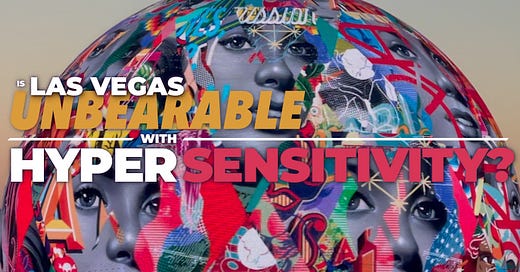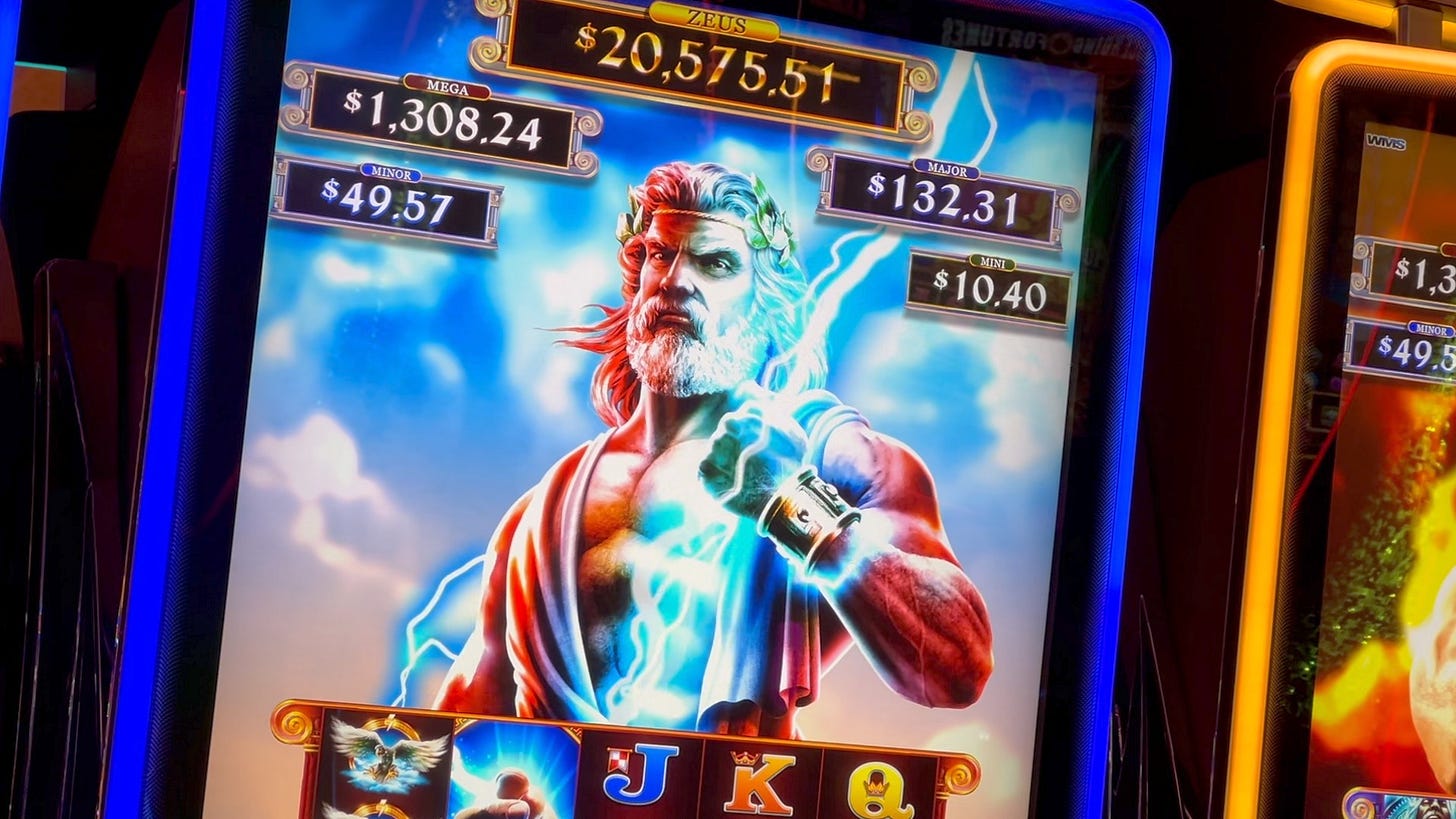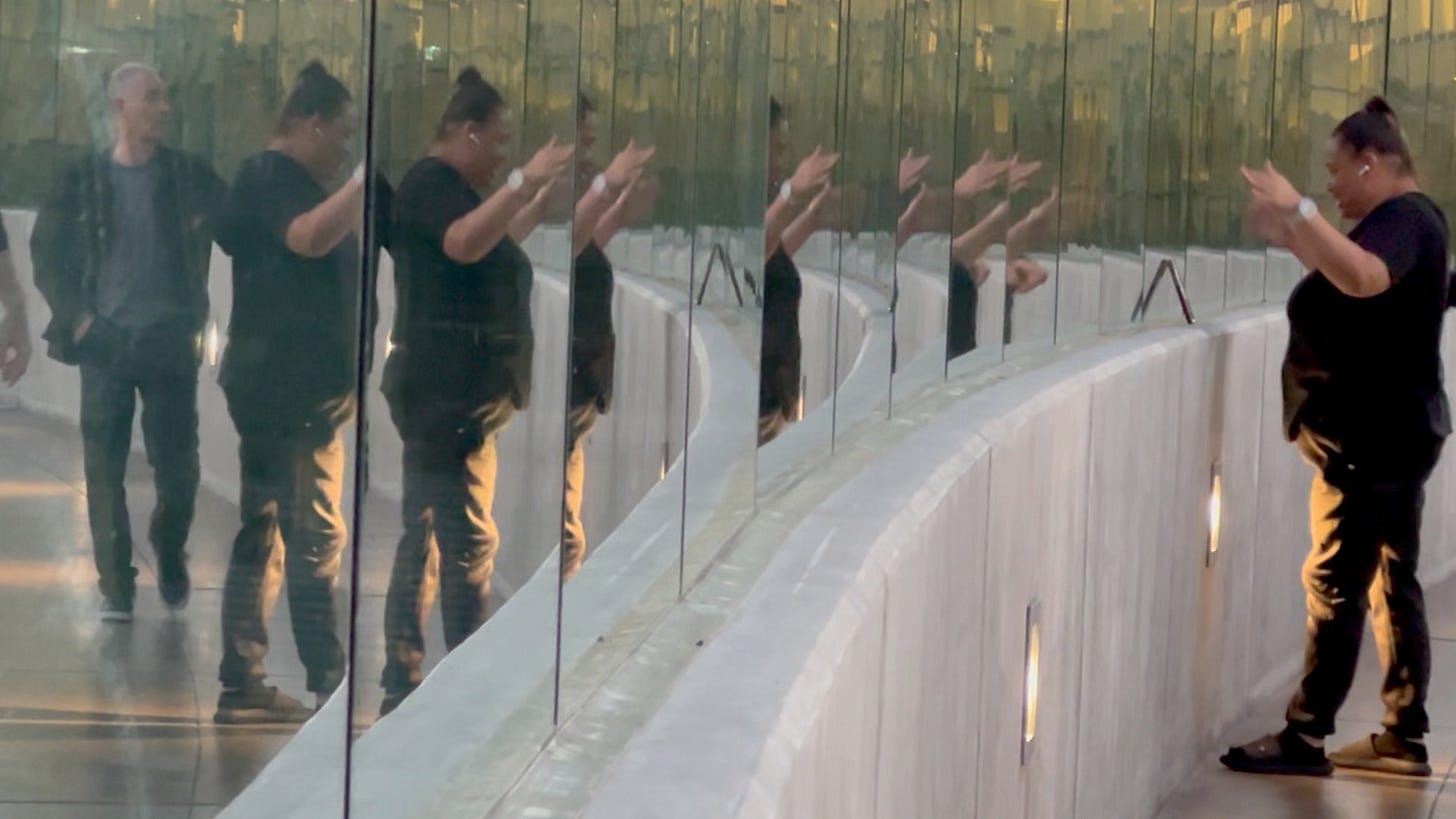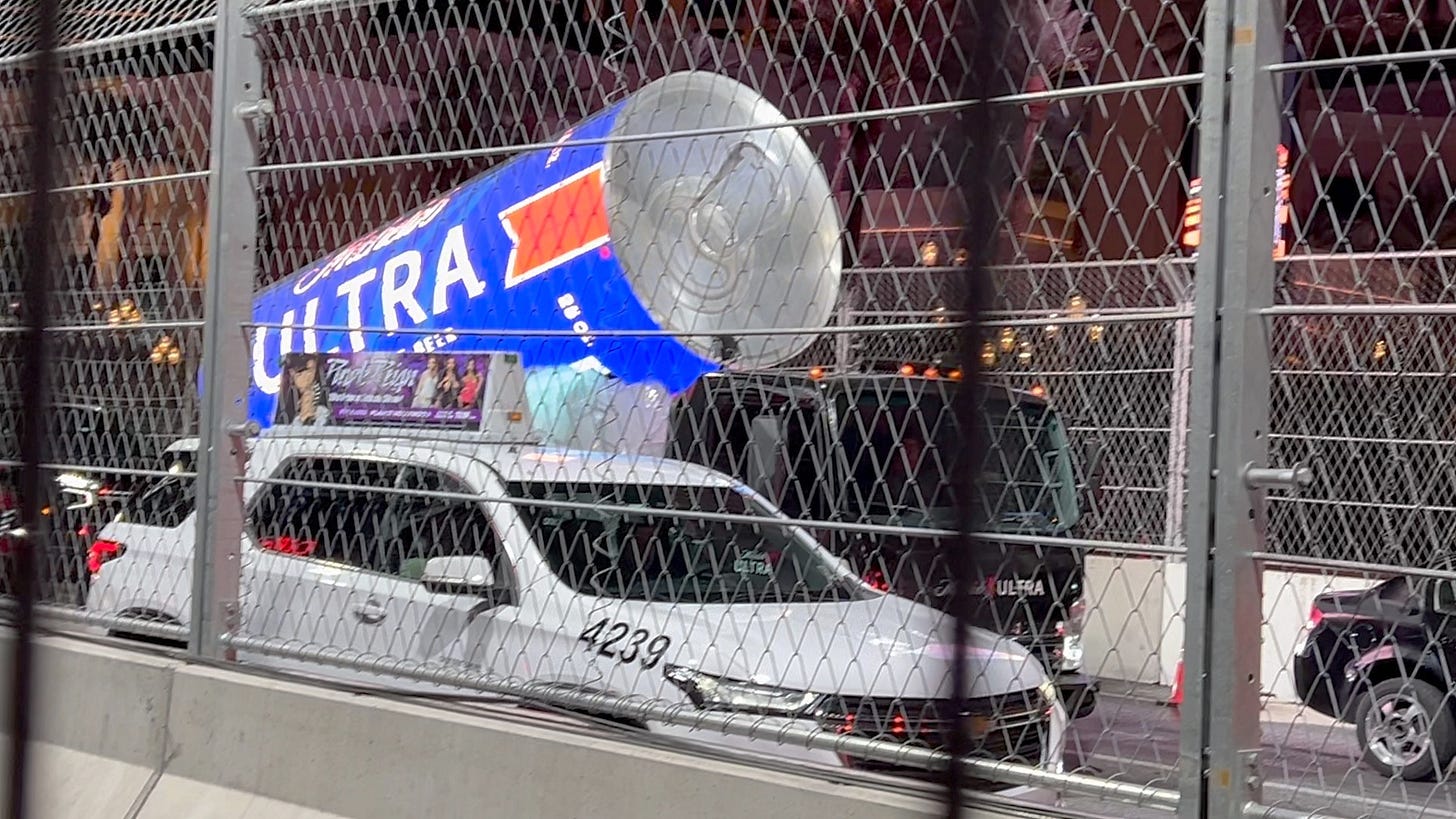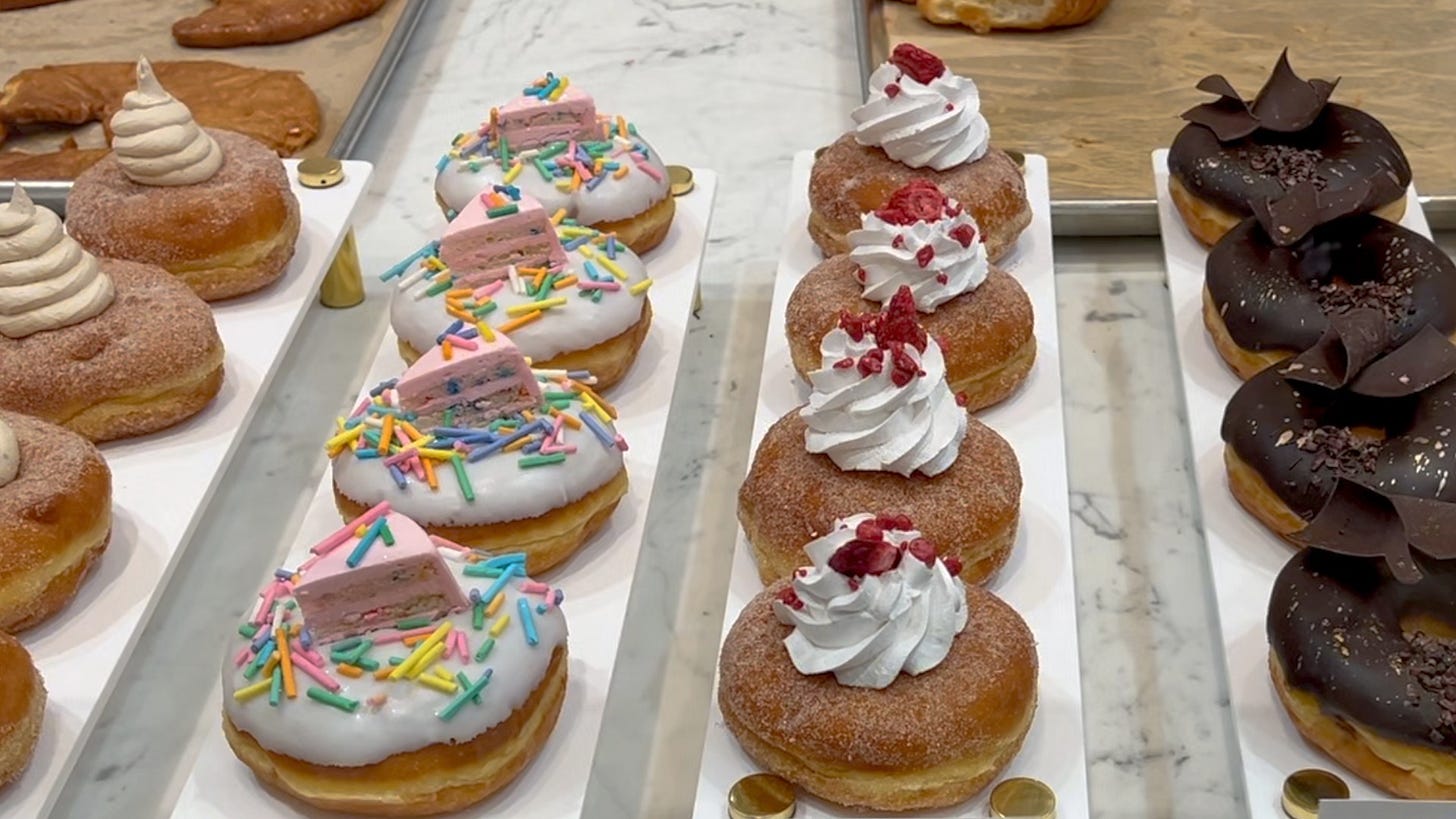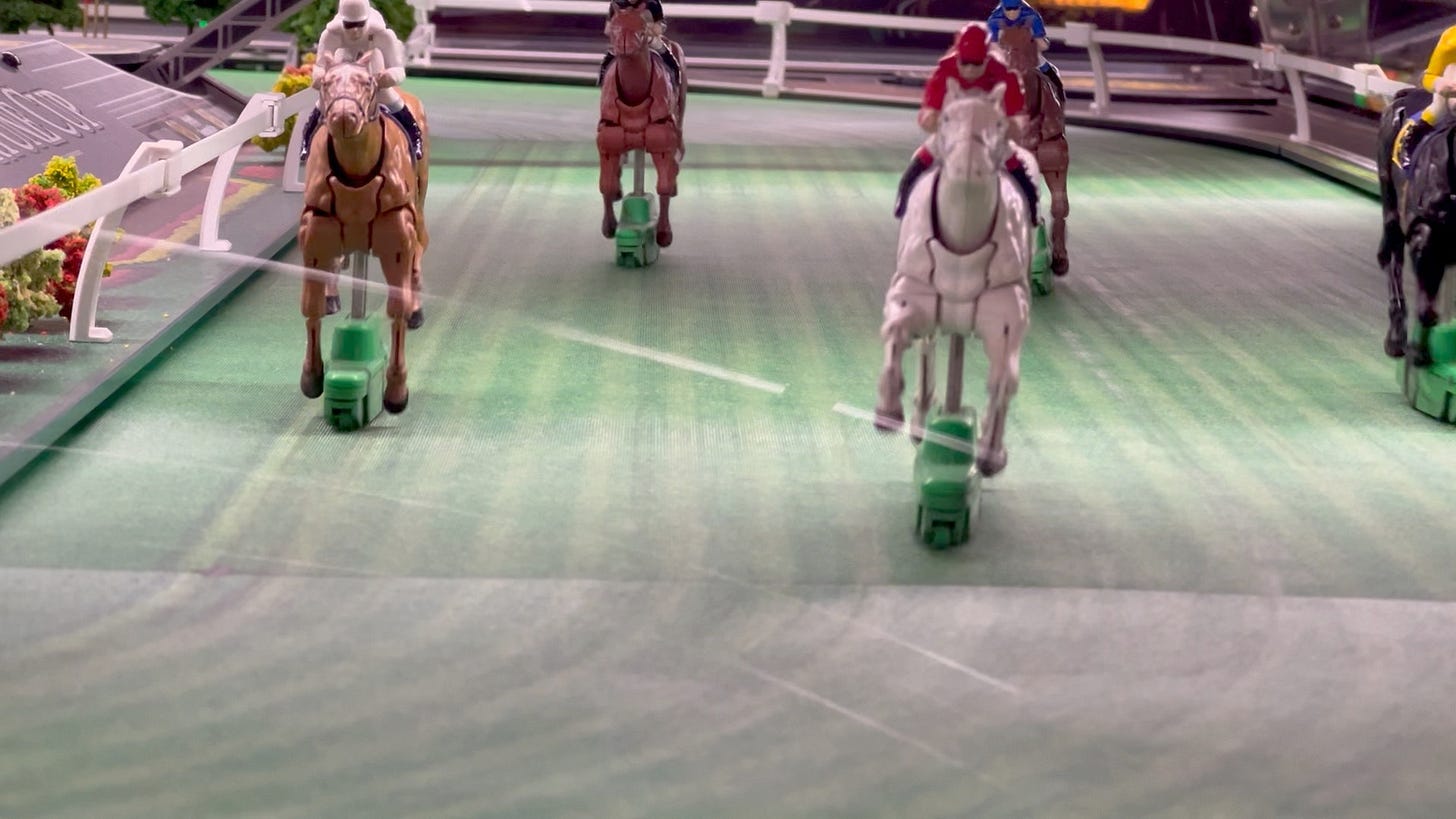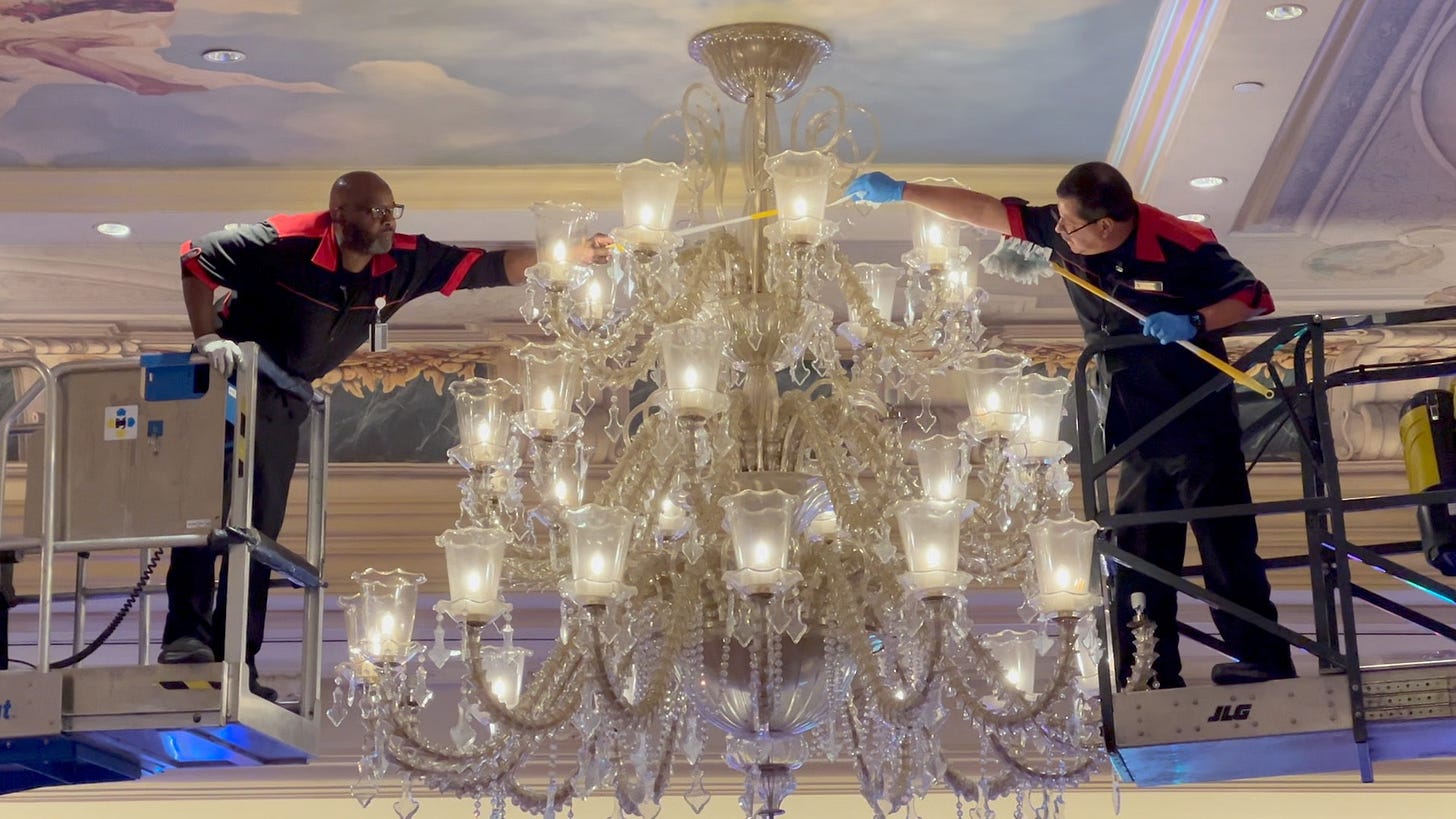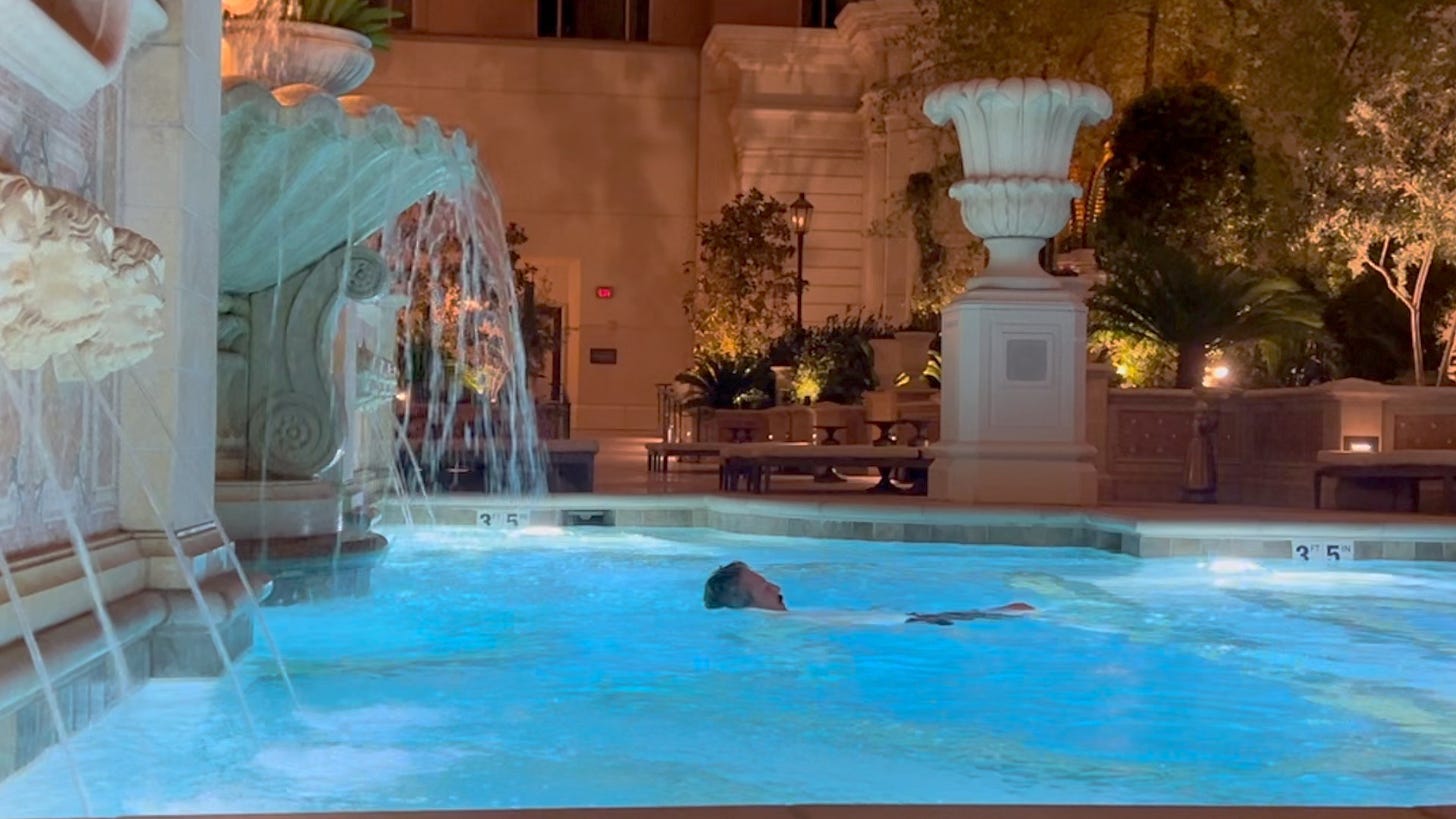How Does Las Vegas Feel to Someone with Hypersensitivity?
Is being an HSP a curse or a blessing?
Can I invite you to watch and share my new video? It’s the story of what it feels like to visit Las Vegas (arguably the most stimulating city on Earth) if you are a Highly Sensitive Person (HSP).
Until recently I didn’t know I was an HSP. Occasionally I would confide in someone that I had “sensory issues” but I didn’t realize there was an official term to describe people like me. Apparently I am not alone! If the term is as new to you as it is to me, a definition of “HSP” might be helpful:
Highly Sensitive Person, or HSP, is a term coined by psychologist Elaine Aron. According to Aron’s theory, HSPs are a subset of the population who are high in a personality trait known as sensory-processing sensitivity, or SPS. Those with high levels of SPS display increased emotional sensitivity, stronger reactivity to both external and internal stimuli—pain, hunger, light, and noise—and a complex inner life. —Psychology Today
If that sounds like you, I think you will appreciate my video. And if it DOESN’T sound like you, then the video might interest you even more. Because if your sensory system is “normal” then it might surprise you to put yourself in the shoes of an HSP experiencing the overwhelming experiences of Las Vegas.
The more I study the subject of hypersensitivity, the more it explains many of the unexplainable aspects of my life — the introversion, social awkwardness, my need for quiet, peculiar obsessions, perfectionism, unwanted tears, my professional successes and failures, childhood struggles, inner demons —I could go on and on. It’s all twisted up in how my sensory system processes stimuli. I feel, therefore I am. I’ll leave it at that and let the video tell the story from here.
YouTube Link: How Does Las Vegas Feel to Someone with Hypersensitivity?
Thanks for reading, watching, and amplifying. Stay creative.
Your friend,
Ade
Is Las Vegas Unbearable with Hypersensitivity?
VIDEO TRANSCRIPT
** I’d recommend you watch the video instead, but for the readers in the group, what follows is the transcript from the video.**
Does everyone have a sensory threshold? Is there a point where the mind breaks because there is just too much to see, hear, smell, touch, and taste? That’s the definition of sensory overload. Human brains can only process so much input without consequences.
In this video I am going to try to describe what Las Vegas feels like to someone with hypersensitivity. Some of us have lower sensory thresholds than normal. We’re not always in sensory overload but there is a near perpetual panic. It feels like we are always on the verge of shutdown, one stimulus away from inner crisis. That’s called hypersensitivity. The same jolts that other people feel as pleasure hit us as stress.
You might wonder how someone with hypersensitivity can walk through a casino. It’s not pain exactly. It burns, like holding your breath as you swim against the current under the ice of a river. And every second you hold your breath, you feel your energy draining out. You are a battery that’s depleting, overheated by the demands placed on your distressed sensory system. All these lights, sounds, smells – the brighter they glow, the more energy it sucks out of you.
I try to imagine what it would feel like to be normal, the kind of person for whom this place would deliver a steady flow of pleasure. They crave more color, more light, more sound, smell, and flavor. That’s why people come here, isn’t it? To have everything turned up to eleven? My theory is that those people, the ones who love Vegas, live their lives in a state of limited sensation. They come here to feel something. Their “normal” is that everything is gray, ordinary, something they enjoy escaping because for them the extreme stimuli register as pleasure, not danger. So they come to Vegas to feel something in the parts of themselves that have gone numb through the routine of ordinary life. But that’s just a guess, it’s hard to put yourself in another person’s skin.
So, no, Vegas is not for people with sensory issues. You don’t look forward to Las Vegas if you are the type of person who avoids crowds. There’s smoke and perfume. Flashing lights. Loud sounds. Unavoidable physical contact with strangers and open invitations to be touched by beautiful people. And it all gets reflected and magnified by mirrors, screens, and chrome plating. There’s no escape, only hallways and sidewalks that push you to different variations of sensory overload.
But Las Vegas isn’t impossible with hypersensitivity. Here’s what worked for me.
Noise cancelling headphones. Calm, familiar music.
Clothing is important. Dress for comfort. As a kid, I couldn’t wear socks, the feeling of cloth on my feet threw me into panic. Typically my wardrobe avoids color, my preference is gray. I can’t stand labels. I prefer clothes without logos or words. I don’t wear rings, I can barely wear a watch. I have sunglasses but barely wear them.
I walk the strip without a destination or time limit. Because a destination is stress. Instead, I wander.
I remind myself that in Las Vegas you are invisible. Nobody cares. One of the benefits of Vegas is that I can pretend to be a tourist. Nobody cares that you are holding a camera. Airpods are the norm.
As I walk the strip I navigate the triggers. I spot the group with cigars and steer clear. A fragrant shop? I take a deep breath and keep walking.
November is perfect for Las Vegas. Not too hot. Cool enough for a soft jacket. I turn up my collar, trying to expose as little skin as possible.
There is a paper napkin in my pocket. I squeeze it in my hand subconsciously. Something about the pressure, its inherent cleaning properties, it soothes me, distracts my system from the other competing stimuli.
Does alcohol help? Not for me. This might seem counterintuitive, but inebriation makes it worse. Because after a beer, the mental controls that you have been trying to hold onto lose their grip. For me it is better to be alert and slightly panicky than to be dulled out of control. I don’t smoke. Nicotine comes with unbearable odors. Stimulants? Is more stimulation really a good idea? Coffee is welcome but I wouldn’t risk anything more stimulating than caffeine.
Strolling down the strip may not seem like an achievement. But with the backdrop of a lifetime of sensory overload, it feels like a milestone. Heck, just having words for this, and an audience that wants to understand is healing.
There weren’t hypersensitivity diagnoses in the 80’s. The hyperactive kids got the drugs and the rest of us were told to toughen up. Suck it up. Act like a man. “What’s wrong with you?”
But you figure it out eventually.
Through trial and error you learn how to pretend, how to cope. And you do toughen up. Eventually. You get better at pretending to like hugs. Handshakes. Small talk. Birthday parties. Restaurants. All the parts of normal life that involve touch, sound, and heightened stimulus.
Hypersensitivity is torture as a child, but if you survive to adulthood, you’ve learned to cope. You might be so good at masking it that nobody knows your secret. But the by-products of your fight/flight/freeze responses slips out. And it adds up.
Flight means you skip social activities. But you can only skip so many parties before you get labeled anti-social.
Freeze means you tend to shut down in groups, causing people to label you as shy.
Fight means you have harsh mood swings. People tiptoe around you because they can’t see the pattern to what sets you off.
Maybe hypersensitivity sounds like a curse, but it has its advantages, too. I don’t have to go to Vegas to feel excitement. In places where most people find boredom, I find worlds that I can get lost in. I see beauty where others struggle to see anything. I hear things that others miss, the words that people can’t say out loud but reveal in their tone and non-verbal clues. And I don’t think I would be an artist if I wasn’t wired this way. For better or worse it has shaped how I see, hear, and feel my world.
After the barrage of stimulus, I retreat to the hotel to wind down. I find an empty pool. Few people swim when there are so many alternatives to choose from, so I have the place to myself.
The water is body temperature. I fill my lungs with air and float. Weightless. Under water all the sounds of the city blur into white noise. Immersed in this makeshift sensory depravation chamber, I feel myself coming back to life.
Thanks for watching and reading.
If you made it to the end of this essay, then my words must resonate with you. Can you do me a favor? Share this. Like it. Email it to someone. As a creator, my success depends on people like you who help amplify my work. Your support comes with my sincere thanks. And if you are someone who relates to my description of hypersensitivity, I’d love to hear your story. Until next time, stay creative.
Your friend,
Ade


